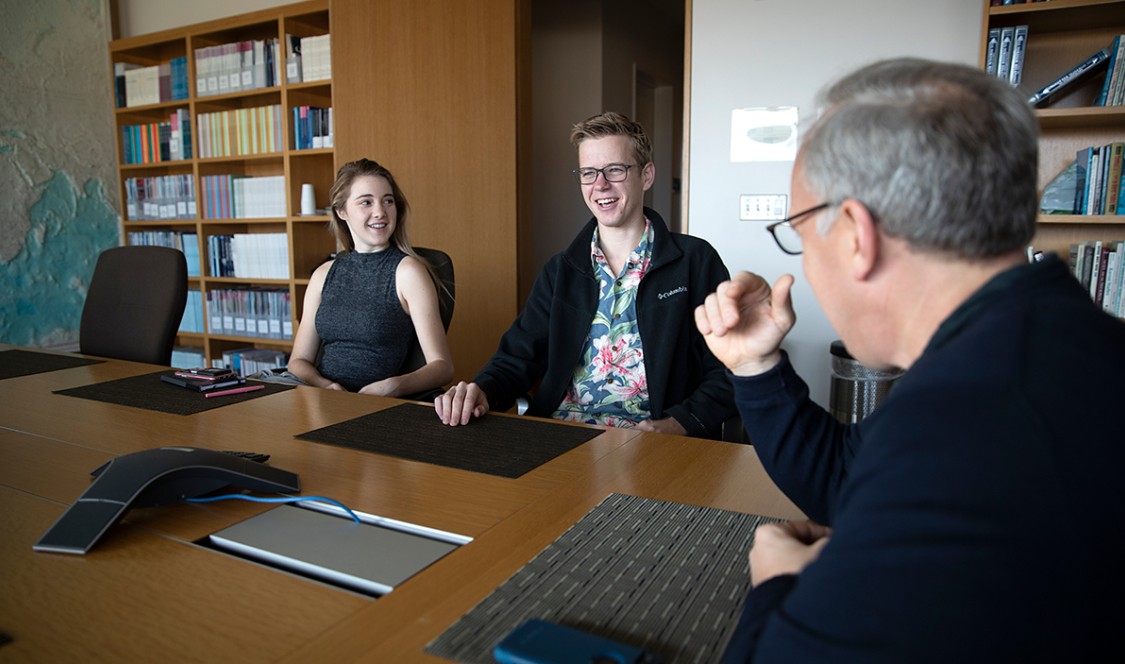Each academic year brings its own unique energy and excitement thanks to new faculty arriving to Claremont McKenna College. Here’s a brief introduction to the new faces you’ll see on campus.
New assistant professors
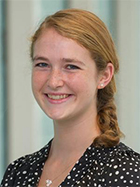
Sarah Cannon, assistant professor of mathematics
Sarah’s area of research is randomized algorithms, which looks at how computers can use randomness to solve problems quickly. While the randomized algorithms she studies are often quite simple, detailed mathematical analysis is needed to provide guarantees that they converge quickly and don’t produce misleading results. Her work has connections to many other areas, including statistical physics, distributed computing, and political redistricting.
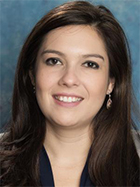
Jennifer Feitosa, assistant professor of psychology
Jenn’s research interests include cultural diversity and teams at work, with an overarching emphasis on methods. Her recent work featured in American Psychologist this summer debunks some of the known teamwork assumptions by incorporating a cross-cultural lens. She is currently engaged in various projects utilizing a range of methodologies, including meta-analysis, latent profile analysis, structural equation modeling, and field, crowdsourcing, and laboratory studies. Jenn is looking forward to contributing to, collaborating with, and learning from the CMC community.
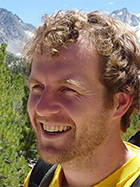
Michael Izbicki, assistant professor of computer science
Mike's research develops machine learning algorithms for large scale social media data. His current projects develop natural language processing tools for underserved languages (such as Spanish, Arabic, and Dothraki) and underserved dialects (such as African-American English and Mexican-American Spanglish). This work applies techniques from deep learning, high dimensional probability, computational geometry, and numerical optimization. Mike maintains dozens of open source projects, and he earned Congressional recognition for fostering collaborations between North Korean and American students on these open source projects.

Florian Madison, assistant professor of economics
Florian’s research focuses on theoretical micro-founded monetary macroeconomics with an application to entrepreneurial finance, banking, and over-the-counter financial markets. At its core is the notion of liquidity to understand how different media of exchange enable transaction settlement, laying the foundation for an analysis of optimal monetary and fiscal policy. In doing so, he is particularly interested in bilateral trades subject to search, bargaining, and information frictions, and their implications for optimal contract design. Empirical studies and calibrations complement the theoretical findings and provide an application to data.
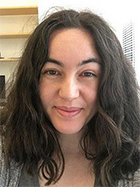
Sarah Marzen, assistant professor of physics
Sarah uses information theory and machine learning to develop theories to explain biological phenomena, and is particularly interested in how and why organisms learn to predict their sensory input. Her recent article titled “Optimized bacteria are environmental prediction engines” was published in the Physical Review E and explored bacterial phenotypic variability in fluctuating environments.
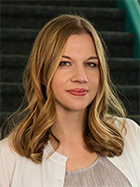
Jessamyn Schaller, assistant professor of economics
Jessamyn’s research interests are at the intersection of labor, demography, and health economics. She has studied the effects of business cycles and job loss on family formation and health, and examined interactions between female labor market opportunities, family time use, gender roles, and child outcomes. Her current work considers the effects of late-life wealth and health shocks on intergenerational financial transfers and the roles of media and social media in childhood vaccination.
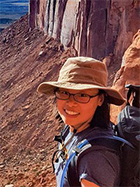
Janet Sheung, assistant professor of physics
Janet is an experimental biophysicist who aims to ask questions for which the necessary microscope does not yet exist—then build one to answer them. She currently studies cellular regeneration using the unicellular ciliate Stentor coeruleus as model organism, and the self-organization dynamics underlying the phenomenon of bacterial iridescence. She has collaborated with biologists, chemists, physicists, engineers, and applied mathematicians, and she continues to be excited to forge research collaborations across disciplinary boundaries. As a teacher, she is dedicated to the development of laboratory experiences that teach scientific inquiry and communication.
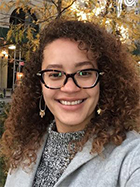
Briana Toole, assistant professor of philosophy
Briana was previously at Baruch College as a post-doctoral fellow and at MIT as a pre-doctoral fellow. Her research examines the relationship between epistemic, political, and social systems. She is currently working on a project investigating the conditions that allow for certain epistemological systems, like white supremacy or patriarchy, to survive and thrive. She is further analyzing how acts of social and political resistance are “held hostage” by the socially powerful. Briana is also the founder of Corrupt the Youth, a philosophy outreach program that aims to bring philosophy to populations that lack access to it. Her work has been featured in Hypatia, Times Higher Education, and the Examining Ethics podcast.
New full-time visiting faculty

Brian Duistermars, visiting assistant professor of biology
Brian is a neuroethologist who has studied the neural control of flight and social behaviors exhibited by the fruit fly, Drosophila melanogaster. His recent work used computational behavioral analyses and genetically based techniques for neuro-manipulation to discover a cluster of neurons that mediate complex threat displays. In addition to his deep interest in the lives of flies, Brian also enjoys hiking, backpacking, and being outdoors.
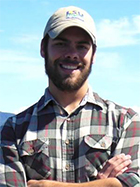
Matthew Faldyn, visiting assistant professor of biology
As an ecologist, Matthew’s research focuses on assessing how climate change affects species interactions using the charismatic monarch butterfly-milkweed system while also fostering undergraduate student engagement in scientific research. A major focus of his work has been on designing and assessing the efficacy of student enrollment and participation in course-based undergraduate research experiences (CUREs).

Blanford Parker, visiting professor of literature
Blanford’s chief research has been Restoration and 18th-Century British literature. He has been concerned with the transition from Baroque to Augustan poetry. All of his work has emphasized how changes in figurative speech mark the chief epochs of poetry. He has also occasionally written about Robert Frost and other modern figures. He just completed an essay for the new Oxford Studies in Samuel Johnson entitled “Johnson’s Religion” and is now researching the relation of the Vergilian triad to European genre theory.
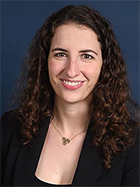
Rachel Paterno-Mahler, visiting assistant professor of physics
Rachel studies galaxy clusters, which are the largest gravitationally bound objects in the universe. Galaxy clusters are collections of galaxies, and they contain large amounts of hot, X-ray emitting gas, as well as dark matter. The theme of her research is how the interaction between galaxies and the X-ray emitting gas in galaxy groups and clusters affects galaxy evolution and mass measurements, which in turn affects the measurements of cosmological parameters. She takes a multi-wavelength approach to studying these objects with the aim of understanding the physical processes that affect our ability to determine the mass of these objects. Accurately calculating the mass is crucial for using clusters to constrain cosmological parameters that govern our universe.
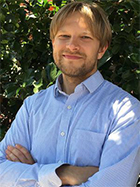
Kevin Setter, visiting assistant professor of physics
Kevin’s research interests include the mathematics of Quantum Field Theory (QFT), which is our bottom-level framework for understanding the universe at the smallest length scales, but in which it remains difficult to do computations in all but simplified regimes and toy models. Specifically, his research has explored a link between QFT dualities discovered by physicists and a corresponding set of results discovered independently by mathematicians and going by the name of the Geometric Langlands Program. He is also interested in solutions of modified theories of gravity (modestly generalizing General Relativity). This spring, he co-authored a paper in The Physics Teacher recounting his work adapting intermediate physics labs for a visually-impaired physics major. Kevin previously taught at Haverford College.

